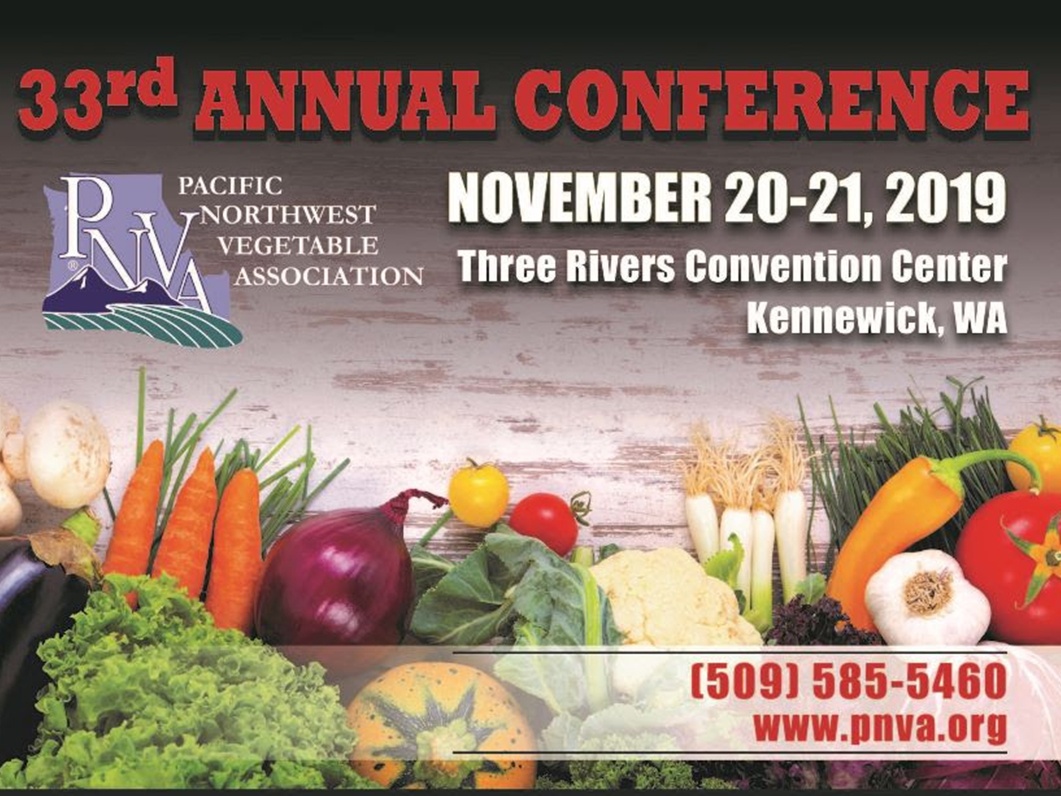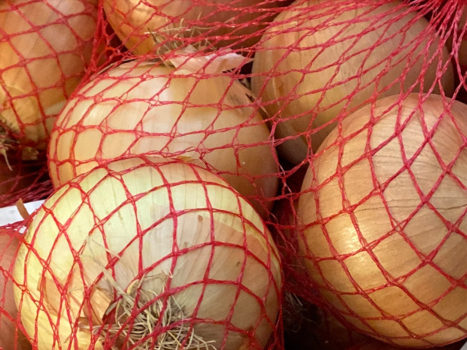Registration for this year’s Pacific Northwest Vegetable Association Conference and Trade Show can be done online at https://www.eventbrite.com/e/2019-pacific-northwest-vegetable-association-conference-and-trade-show-registration-65260296303, with a full program available info for lodging accommodations available for the Three Rivers Convention Center event held in Kennewick, WA.
Online registration sales close Nov. 15, and our friend Sherry Nolan is your contact for the Nov. 20-21 event. Sherry can be reached at snolan@agmgt.com.
Both days are jam-packed with great sessions, with the first day’s onion-specific sessions starting off with a look at produce inspections presented by Jill Wisehart of the WSDA Produce Safety Program. Wednesday also features a session on thrips presented by Drs. Stuart Reitz of Oregon State University’s Malheur Experiment Station in Ontario and Tim Waters of the Washington State University Extension. Stuart will also look at alternative insecticides for seedcorn maggot management.
Drs. Carrie Wohleb of WSU Extension and Deirdre Griffin LaHue of SU will look at “Lessons Learned from the WSU Cultivar Trial,” and Dr. Lindsey du Toit of WSU Mt Vernon NWREC will speak about effective identification and treatment of diseases impaction onions.
Wednesday afternoon will feature Dr. Joel Felix of OSU Ontario looking at crop rotation strategies for weed management in onions, and Lindsey du Toit will discuss bacterial rots of onions and the SCRI project update.
The trade show will kick off at 2:30 p.m. Wednesday, and the afternoon sessions continue with Eric Evans of Agri-Stor discussing onion storage management to maintain quality, Dr. Scott Lukas of OSU Hermiston discussing drip irrigation for onions in sandy soil and an update from Greg Yielding, executive vice president of the National Onion Association.
Other crop sessions covered on Wednesday include watermelons, asparagus, peppers and legumes, and issues to be tackled include remote sensing advances in crop stress monitoring; mobile drip irrigation; soil health opportunities and assessment; emerging seed-borne viruses; heat tolerance for broccoli varieties; beet leafhoppers and the diseases they spread; vegetable diseases and highlights from the HAREC Plant Clinic; and discussions of common mistakes observed during inspections and investigations by WSDA Pesticide Investigator Ethan Estalilla of WSDA.
The second day of the Kennewick show starts with a discussion of water quality and pesticides and goes on to look at nematodes in vegetable crops; pesticide exposure and what it looks like; a pesticide information center; seedling blights of sweet corn; volunteer crops as weeds and how to control them; a new product update; abiotic causes of disease-like symptoms; and carrot cavity spot.



